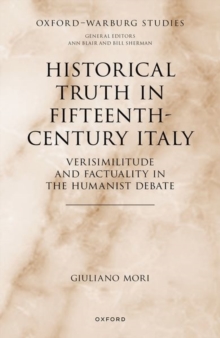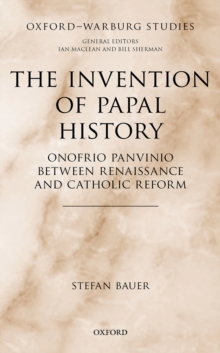
Historical Truth in Fifteenth-Century Italy : Verisimilitude and Factuality in the Humanist Debate EPUB
by Giuliano Mori
Part of the Oxford-Warburg Studies series
EPUB
Description
While humanists agreed on identifying the main requirement of the historical genre with truthfulness, they disagreed on their notions of historical truth.
Some authors equated historical truth with verisimilitude, thus harmonizing the quest for truth with other ingredients of their histories, such as their political utility and rhetorical aptness.
Others, instead, rejected the notion of verisimilitude, identifying historical truth with factuality.
Accordingly, theysought to produce bare and exhaustive accounts of all the things that pertained to their historical explorations, often resorting to innovative disciplines, such as archeology, philology, and the history of institutions.
The humanist historiographical debate is especially significant because thenotion of verisimilitude encompassed crucial elements required for the development of methods of critical assessment.
By perceiving verisimilitude and factuality as irreconcilable, Quattrocento humanists reached a critical impasse—those who were interested in factual truth mostly lacked the means to ascertain it, while those that developed embryonic notions of historical criticism were not eminently concerned with the factual account of the past.
This critical weakness exposed humaniststo considerable risks, including that of accepting non-verisimilar historical forgeries passed off as factual.
Such forgeries eventually served as a testing ground for sixteenth- and seventeenth-century scholars, who sought to restore factual truth by means of critical criteria grounded in verisimilitude,thus overcoming the humanist impasse.
Historical Truth in Fifteenth-Century Italy addresses Renaissance history, philosophy, rhetoric, and jurisprudence to shed light on how humanists conceptualized truth and, more specifically, historical truth.
Information
-
Download - Immediately Available
- Format:EPUB
- Pages:256 pages
- Publisher:OUP Oxford
- Publication Date:22/01/2024
- Category:
- ISBN:9780198885955
Information
-
Download - Immediately Available
- Format:EPUB
- Pages:256 pages
- Publisher:OUP Oxford
- Publication Date:22/01/2024
- Category:
- ISBN:9780198885955










